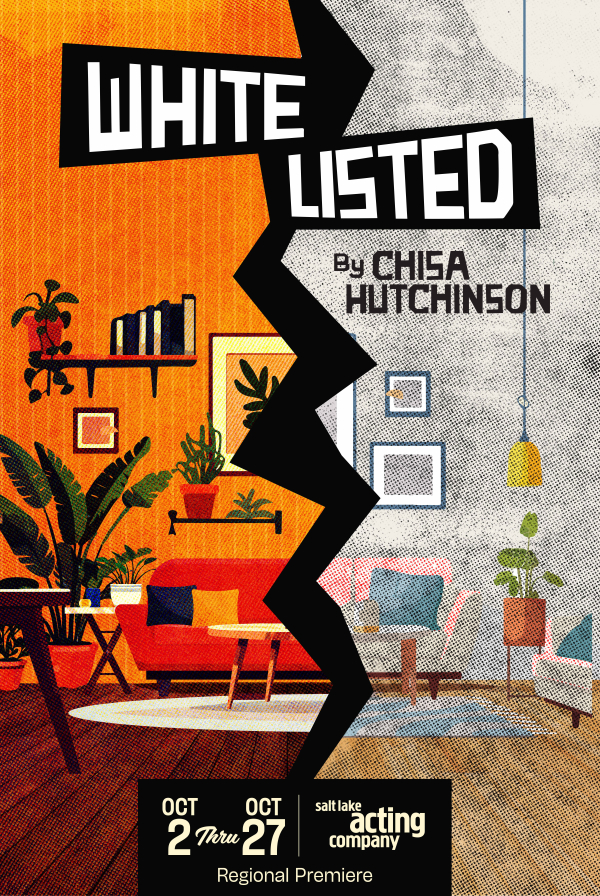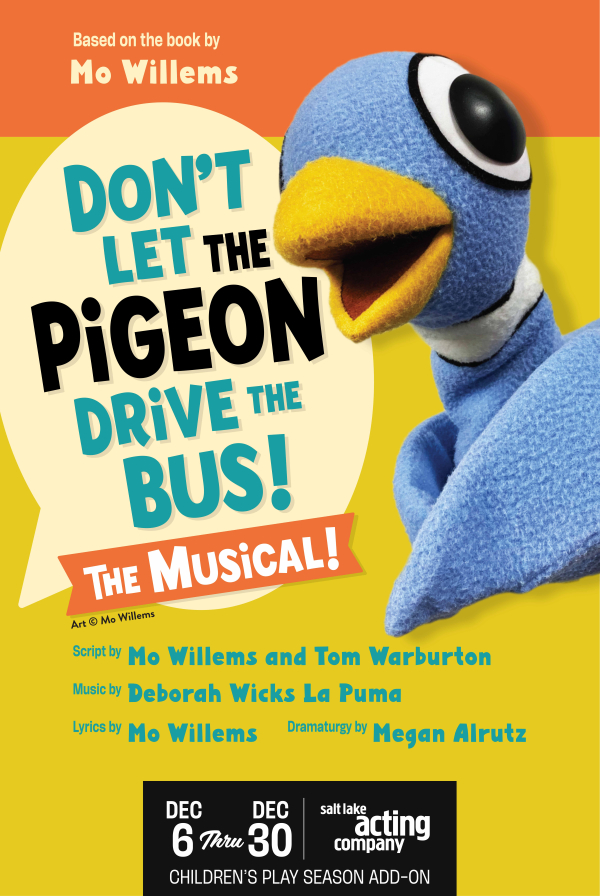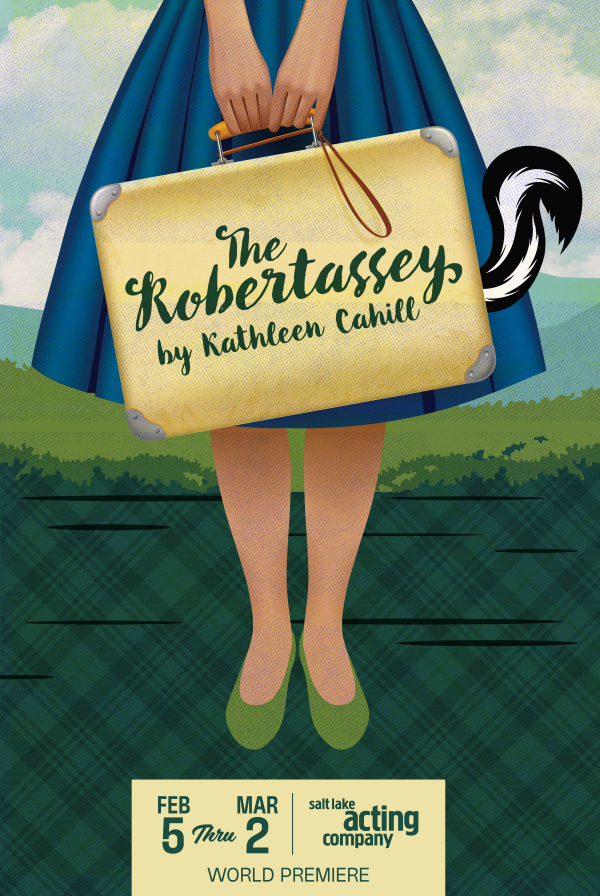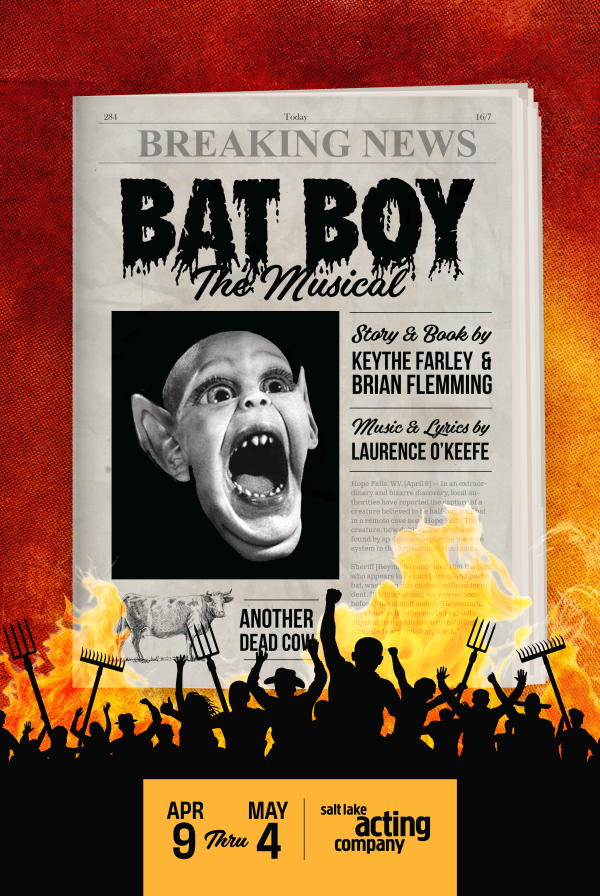Very Old and Brand New
E (Erika Ahlin): Tell me how your relationship with SLAC began.
J (Julie Jensen): I was at a conference and I ran into Ed Gryska. He was from Salt Lake Acting Company and he said to me, “You haven’t sent us any work.” So I sent him STRAY DOGS, which is a play set in Utah that had won a big prize at Arena Stage, and had been produced there, and my mother hated it. She said, “Don’t you ever bring me to another play like that.” So I didn’t. Al Nevins was the Literary Manager at that point, and Nancy Borgenicht and Ed were running the theatre. They read STRAY DOGS and said, “Oh yeah this person writes.” After that we were kind of in touch, particularly Nancy and me. Then SLAC produced WHITE MONEY, which I tried to rewrite this summer. It’s a play about politics; it’s very exaggerated. Then I realized in this climate you cannot make a satire about American politics, because the reality is far worse than anything you can think of.
WHITE MONEY was a weird, weird play and it won this big ass award. It was with Salt Lake Acting Company so they did the World Premiere and it’s been on a few times since then but it’s really hard to do. So anyway, that was the beginning of it.
E: How many plays have you written?
J: I don’t really know. It’s something over 35. I always said I would write as many as Shakespeare, not to compare myself, of course.
C (Cynthia Fleming): Tell me how you and Tracy met and how did you know that you two could team up?
J: She called up four or five years ago. I knew who she was but I didn’t really know her and hadn’t worked with her. I knew her work and I had certainly seen things here that she directed, but had never seen anything at Weber. She said that their department was going to do nothing but new plays next year. (And by the way they are going to do it again next year, following this year, nothing but new plays.) She said, “You got anything you would be interested in working with me on?” And I said, “Sure.” I told her I was working on a play about Christmas called CHRISTMAS WITH MISFITS, and also that I had received a commission from the Kennedy Center to adapt this novel called MOCKINGBIRD, which is about an autistic girl. And she said, “My son has autism. I would really be interested in that.” So I said, “Ok, read MOCKINGBIRD. See what you think.” She called me in March and said it would be in the following year that she would want to start working on it. So by January I had a draft. And the deal was she was going to work on it 3 times a week for 3 hours a day for 3 ½ MONTHS! The Kennedy Center came out and saw the production and I said, “I really want to work with her.”
C: So did she really help in the developing of it?
J: Absolutely.
C: It was a great production.
J: It was. It was a wonderful production. I just loved it. It was so fun. I went up there once a week and watched them do whatever they were doing that day. And Tracy would feel a little nervous about saying, “I don’t think this scene works” or “What’s this doing?” but now we both take each other’s places. I mean I feel absolutely fine saying “She doesn’t giggle through that.” “You start the beat here not here.” Even though that’s a director’s thing and I wouldn’t dream of saying shit like that to actors directly without going through a director, but we both do it. She says things like “Could you do something with that part right there?” And I do. So we trust one another.
C: So after MOCKINGBIRD did you say let’s do it again?
J: She did the production of MOCKINGBIRD in Washington and then she did the production at Pygmalion. And I said, “Ok this is what I am going to do in the summer. I’m going to write this play.” I was writing it for Anne Decker because she brought me the material. Anne said, “There is this person I know who wrote a book about this woman’s right to die.” I said, “I’ll read it.” And then we went to lunch with Peggy. I kept saying that this could work. I met with Peggy and Anne every couple of weeks or so. We would have little meetings about being old, what we were afraid of, how we would die if we chose to, what we would tell people. You know, just ideas of what we thought about that subject.
E: The story is so relatable.
J: I want it to be. I really love the subject. My mother died of Alzheimer’s. I promised I would think about it every day. Not Alzheimer’s, particularly, but getting the fuck out. I haven’t done that exactly. It’s been 20 years. But that is a tragedy when people outlive the love other people have for them. They become a burden and they lose their dignity. My mother had gone from this dignified woman to this crazy, weird, strange acting woman. So it’s important. I think we have to do something about this. There is a line in the play: “Nursing homes are full of mindless people who have all said, ‘I will not live like that. I will not be one of them,’ and yet they are.” We have to do it ourselves or we lose the chance. Because nobody else is going to say, “Well would you like me to kill you now?” No that is not the way it’s going to be done and nobody is going to do it. We have to do it ourselves. And we have to go before the last possible minute, because if we go right up to the edge, we will fall in there and we will lose our brains and be unable to do it.
E: What are you most excited and/or scared about with this production?
J: I have lived with it for a really long time. Plays usually take a couple years, but this one, because I had the actor and stuff, it was fast. Cynthia came in and said yes early. So it’s faster than usual, but you live with it in your head. It has never been on its feet, so it was very exciting to see the run through last night.
I’m not exactly afraid. That’s one of the things about having a really good director. She is incredible with actors. They understand completely what she is saying. She is there, focused, trying to help it, take it to the next level. She can do crap with it I can’t even imagine. At last night’s rehearsal she said, “Ok now see, starting here the style shifts a little bit so that we are going to go into a weirder world.” And then I look at the play; I didn’t write it like that. I didn’t do that. She’s seeing something I didn’t see. And I’d say she’s right.














